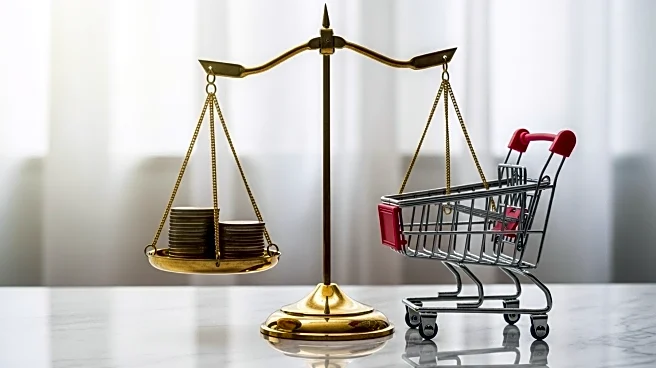What's Happening?
The UK government faces criticism for its handling of economic growth, as analysts from Shore Capital highlight the negative impact of state-imposed cost increases on the retail sector. The analysts describe
the current economic situation as a 'car crash' for the discretionary consumer economy, citing poor consumer confidence and high inflation. Despite the government's pledge to prioritize economic growth, the retail sector has been hit hard by employment taxes and wage increases, leading to concerns about a potential recession. The IMF's assessment of the UK's growth rate offers little consolation, as GDP per capita growth remains low.
Why It's Important?
The economic challenges facing the UK have significant implications for businesses and consumers. The retail sector, a key component of the consumer economy, is struggling under the weight of increased costs, affecting employment and consumer spending. The government's inability to address these issues effectively raises concerns about its economic strategy and the potential for long-term economic stagnation. The situation highlights the need for policy adjustments to support growth and stability, particularly in the face of inflation and fiscal drag. The broader economic environment may influence investor confidence and impact the UK's position in the global market.
Beyond the Headlines
The economic challenges facing the UK also have ethical and social dimensions, as they affect the livelihoods of workers and the affordability of goods and services. The government's approach to economic growth may require reevaluation to ensure that policies are equitable and sustainable. The potential for a recession underscores the importance of proactive measures to support vulnerable sectors and promote economic resilience. The situation may also prompt discussions about the role of government in managing economic crises and the balance between fiscal responsibility and social welfare.









